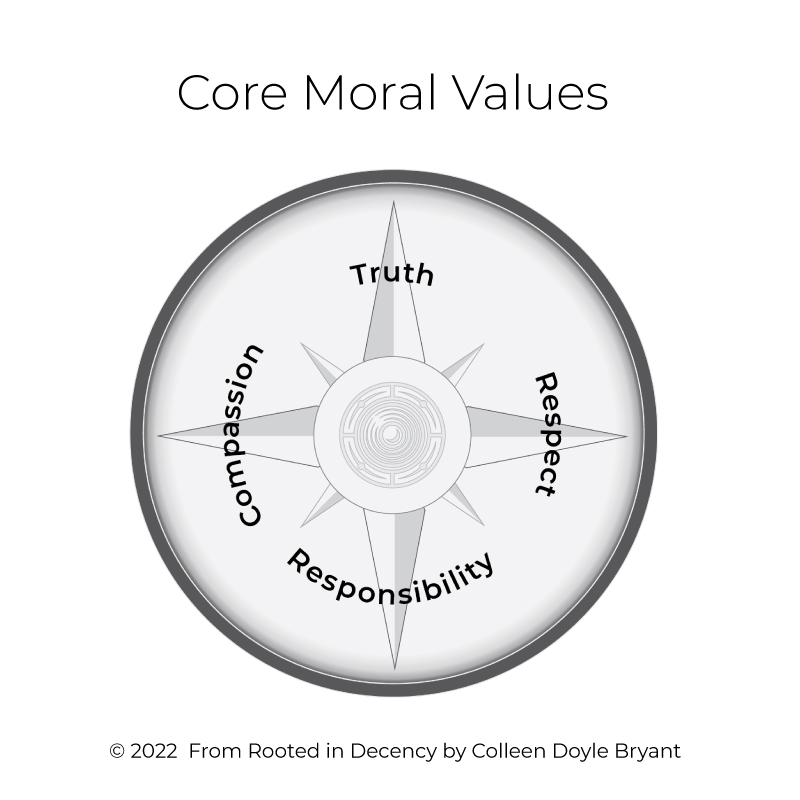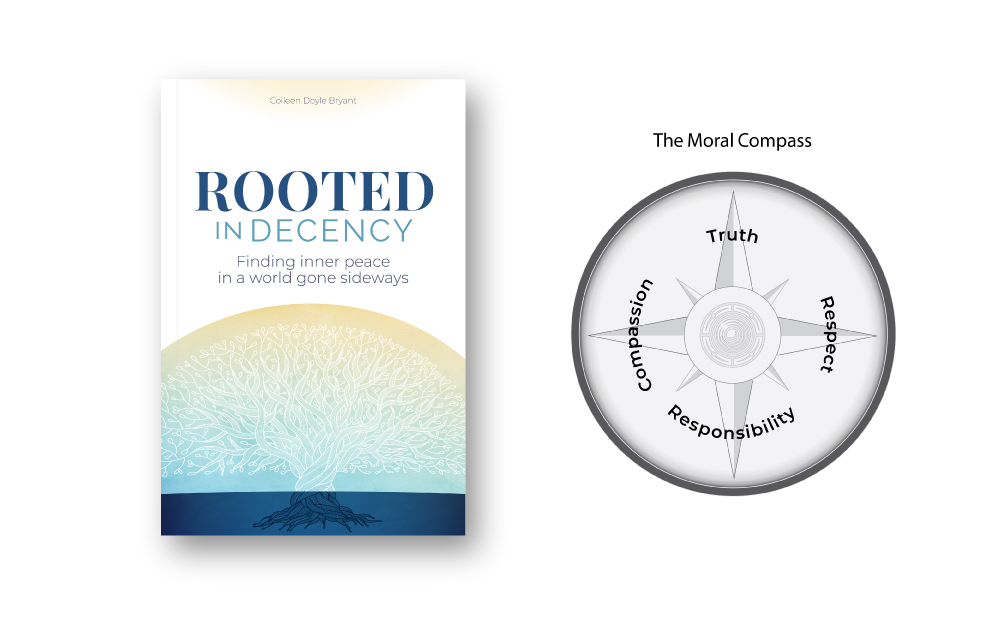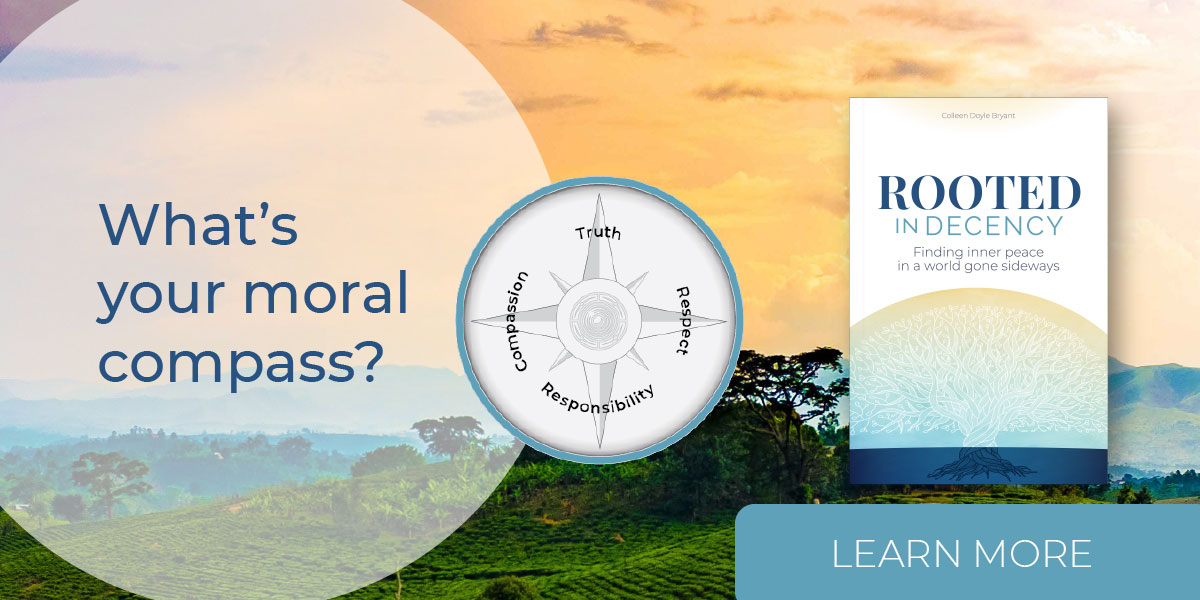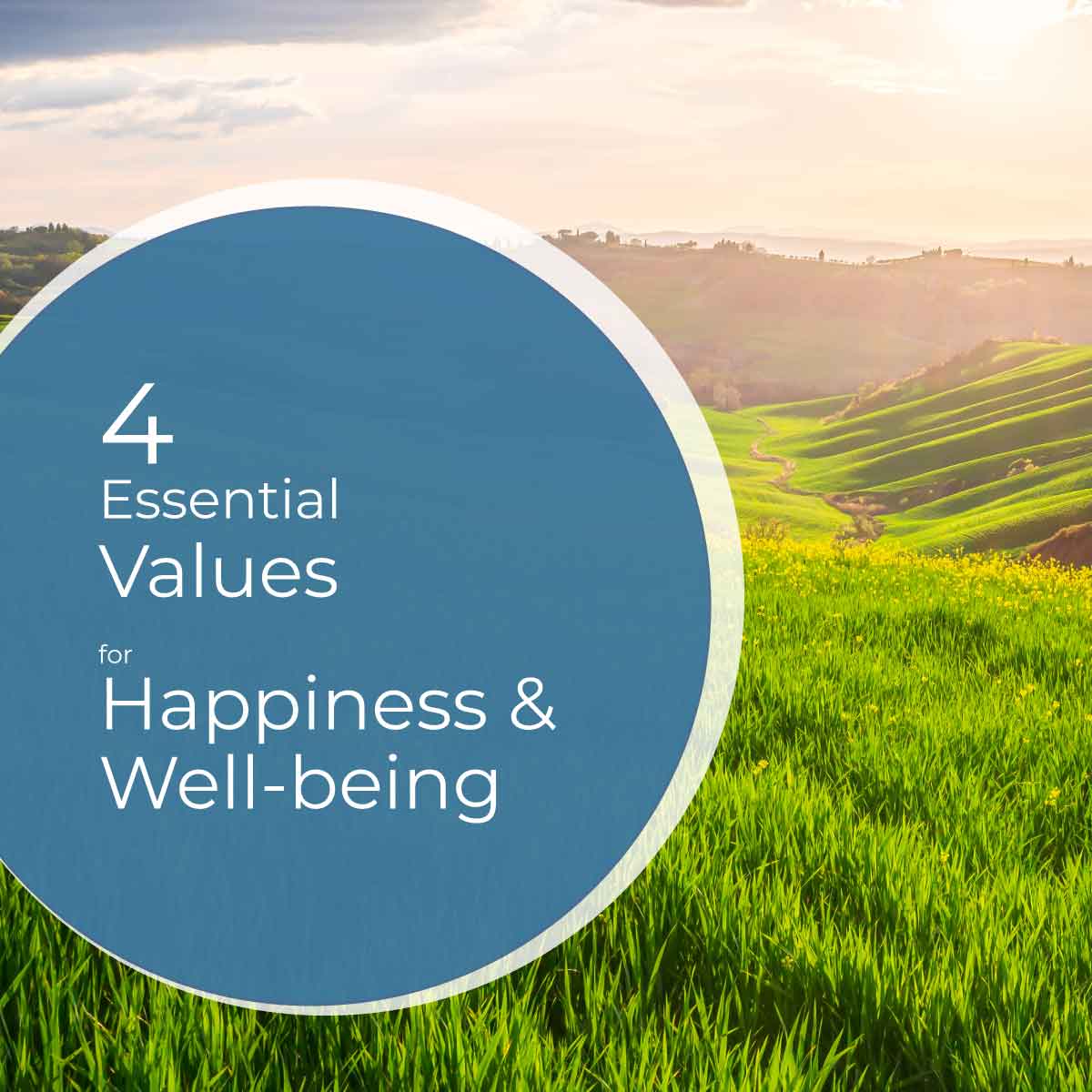
Personal values tests are popping up all over the internet. Maybe you’ve seen them. They invite users to identify their core values, choose personal values, or get values clarification by selecting a few values from a list, based on which values resonate with the user personally.
Personal values tests have grown in popularity because as we emerge from the pandemic, people are asking what they really value in life. They’re looking for clarification on whether they are living a good life, and whether they are making choices that are in line with what they think is important. Employees, in particular, are reflecting on whether their jobs and the companies they work for have values that align with their personal values.
In general, the life coaches and consulting firms who are creating personal values tests are right to say that living in line with our values helps us find more meaning, purpose and well-being. In fact, modern science and ancient moral philosophy reveal that 4 values in particular are essential to finding happiness and well-being. Yet the quality of these assessment tests varies, and some are downright misleading. Depending on how they’re used, personal values assessments may encourage people to make immoral choices or to disregard ethical standards. Before you or your company turn to personal values assessments, consider these pitfalls to relying on “personal values" to guide decision making.
Pitfall #1: Some “personal values” aren’t actually values
One of the arguments for doing a personal values assessment is that it can help you identify the key values that should guide your decisions. Value assessments typically advise users to review a list of a few dozen values and to choose any 3-5 values that resonate with them. Those 3-5 personal values then become the basis for informing one’s choices in life. Some personal values tests go further and say these values should form the guiding points on one’s moral compass, helping them choose right from wrong for their lives.
Here’s the issue: Personal values aren’t necessarily moral values—and confusing the two can lead to some bad decision making.
The difference between personal values and moral values
To get some clarity, let’s look at this abbreviated list of some “personal values” gathered from a variety of values assessments and see if anything strikes you about how they should inform your moral decision making.
Sample “Personal Values” List:
Beauty
Wealth
Fame
Autonomy
Intelligence
Honesty
Empathy
Creativity
Curiosity
Respect
Accountability
Passion
Team Spirit
Equality
Freedom
You may have paused on a few of these “personal values” because they aren’t actually values. They may be something you would value having in your life, but they don’t have anything to do with moral choices about what’s right and wrong.
In the way values assessments are using them, personal values are characteristics of life that you value. They are ways of living and experiencing life that bring you pleasure, satisfaction, or enhance the quality of your life. Examples of personal values include Beauty, Wealth, Autonomy, Curiosity, Creativity.

In contrast, Moral values are behaviors that contribute to individual or societal well-being. They are the behaviors that society agrees are good or right based on whether they are helpful or hurtful to ourselves and others. Personal values can guide your priorities, but if we’re talking about creating a moral compass, then we need to use moral values because those are the behaviors that society agrees are right and wrong, or good and bad.
Moral values are also the basis for ethical standards and show people that we have integrity in the way we live and relate to others. The core moral values that are included in the world’s major religions and belief systems as well as in the Greek philosophy that is the basis of our laws are: Truth, Respect, Responsibility, and Compassion. These categories include behaviors that promote the trust, fairness, and cooperation that keep society functioning and encourage shared well-being.
Why the difference between personal values and moral values is important
One pitfall with basing one’s life decisions on personal values is that we can pursue personal values in a completely immoral way. To illustrate this, let’s say someone chose these 4 words from the “personal values” list: Wealth, Creativity, Passion, Fame. Having one’s decisions guided by wealth, creativity, passion, and fame could allow someone to justify a host of creatively dishonest efforts to enthusiastically take advantage of others in order to make money and get attention. While there’s nothing inherently right or wrong about appreciating wealth, creativity, passion, or fame, there is a right and wrong way to go about living a life in pursuit of them.
Being your authentic self, while still being a good person
Many of the “personal values” on values assessments are actually motivators, interests, and lifestyle preferences. If you’re approaching them with that perspective, then personal values can be helpful in clarifying how you want to live and what type of work you want to do. They may help you recognize what feels like a natural and authentic life. If you are curious and passionate, you’ll likely choose to live differently than someone who is introverted and prefers stability. Someone who values tradition may want to pursue life differently than someone who thrives on change. Understanding your personal values can help you gain clarity about what’s important, comfortable, and rewarding to you.
While we may each want to pursue life as our authentic selves, we have to note the reality that we pursue our authentic life among other people. We may be our own top priority, but we aren’t going to get far exploring our authentic life without living, working, and cooperating with others who are also trying to live their authentic lives. That’s where morality comes in—it's the the common ground that keep us from selfishly harming each other or society as we pursue our own interests. Living by personal values can be great, as long as they are sitting atop a solid foundation in core moral values that guide ethical, respectful actions that honor our own and other people’s well-being.
Side note to employers:
Personal value assessments could lead employees to choose values and to justify making decisions that contradict the company’s ethical standards. In the workplace, personal values assessments need to augment company ethical values, not replace them. Read more about Personal vs Corporate vs Moral values here.
Pitfall #2: Imbalance can lead to immoral choices
The second issue with personal values assessments is that they often list several values that share the same idea, so by advising users to pick ANY 3-5 values that resonate, personal values assessments may encourage users to create a biased value set. To dig into this further, let’s create two fictional people and see how their decision-making might be affected by their own bias if they rely solely on the values that resonate for them.
Person #1:
Self-discipline
Reliability
Accountability
Commitment
Person #2:
Love
Generosity
Hope
Optimism
If we look at Person 1, they have a strong affinity for self-control, which in and of itself is a good, moral value. Yet there’s no mention of honesty, respect, or compassion in their personal values. Could you envision a circumstance where someone who is solely driven by discipline and accountability might lack compassion and demand too much of others, or who might sacrifice honesty in pursuit of results?

Considering Person 2, their values reflect a kindness that would generally be considered morally good. Yet could we predict a circumstance where Person 2 might avoid an important truth to maintain their optimism or they might be so compassionate that they sacrifice accountability?
One of the issues with basing one’s value system on personal preference is that it can be too personal. Values are about creating well-being not just for ourselves, but also for the people we live and work with. It’s the balance between all 4 core moral values: Truth, Respect, Responsibility, and Compassion, that helps us negotiate life and thrive together.
Personal Values with a Moral Foundation
Personal values assessments can be helpful for clarifying what motivates people and they can help shape how people choose to pursue their lives. But personal values should be built on top of a foundation of good moral values that ensure we are pursuing our interests in an ethical way.
If you want to learn more, explore Part 3 of Rooted in Decency, a book that explains the 4 core values that guide ethical behavior and helps readers create a moral compass they can use to negotiate the real issues we’re facing today.









